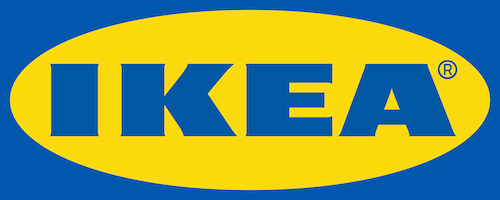Search engine optimisation (SEO) plays a pivotal role in helping businesses of all sizes achieve online visibility and attract the right audience. While most companies focus on ranking for popular, high-competition keywords, savvy businesses realise the advantages of targeting lesser-known but highly relevant long-tail keywords. These long-tail search queries may garner fewer searches, but their specificity makes it easier to connect with users who are more inclined to convert.
This in-depth guide by Hewitt Matthews seeks to enlighten businesses about the untapped potential of incorporating long-tail keywords into their SEO strategy. We will provide expert knowledge, practical advice, and strategic insights into key aspects of leveraging long-tail keywords for success.
Hewitt Matthews welcomes you on a journey of exploration and enlightenment into the world of long-tail keywords. Our unwavering commitment to sharing expert knowledge and advice will guide you in forming a sophisticated, long-tail keyword strategy that bolsters your overall SEO success. By refining your website and content to cater to targeted, specific search queries, your business will enjoy improved search engine rankings, greater relevance, and a competitive edge in the continually evolving digital arena.
1. The Irresistible Appeal of Long-Tail Keywords in SEO
Targeting a Higher-Intent Audience: Long-tail keywords inherently convey more specific user intent, making it easier to attract users who are actively seeking products or services similar to yours. These users tend to have more explicit buying intentions and are more likely to convert into customers.
Climbing the Search Rankings with Lower Competition: As long-tail keywords typically boast lower search volumes than generic keywords, there is naturally less competition for ranking. Thus, incorporating long-tail keywords into your SEO strategy can help improve search rankings without competing head-to-head with larger industry rivals.
Enhancing Website Relevance and User Experience: By focusing on long-tail keywords, your content covers a wider range of topics relevant to your core audience. This enhanced relevance contributes to higher user satisfaction, ultimately leading to stronger organic growth.
2. Identifying Effective Long-Tail Keywords for Your Business
Delving into keyword research: Employ keyword research tools like Google Keyword Planner, Ahrefs, or Moz to uncover long-tail keywords related to your industry niche. Analyse and prioritise these keywords based on factors such as search volume, competition levels, and keyword difficulty.
Capitalising on auto-suggest and “related searches” features: Search engines like Google offer auto-suggest and “related searches” features that can provide additional long-tail keyword ideas. Investigate the search queries recommended by these features to identify new phrases that may resonate with your target audience.
Analysing competitor strategies: Scrutinise competitor websites and analyse their keyword usage to determine if any long-tail phrases are particularly effective. Learn from successful tactics to give your own long-tail keyword strategy an advantageous boost.
3. Seamlessly Integrating Long-Tail Keywords into Your Content Strategy
Creating Targeted, Relevant Content: Develop content focused on addressing specific user needs and questions – an ideal strategy for integrating long-tail keywords organically. Aim to provide value and position your brand as a reliable source of information in your sector.
Inserting Long-Tail Keywords into Essential On-Page Elements: Ensure your long-tail keywords are incorporated in crucial on-page elements such as title tags, meta descriptions, headers, and within the body text. This comprehensive approach fortifies your SEO efforts, capturing the attention of both search engines and users.
Structuring Content for Readability and Flow: While incorporating long-tail keywords into your content, remain mindful of readability and user experience. Maintain a natural flow in your writing, ensuring keyword usage never feels forced or detracts from the reader’s comprehension.
4. Monitoring Long-Tail Keyword Performance and Refining Your SEO Strategy
Tracking Keyword Ranking and Website Analytics: Monitor long-tail keyword rankings and website traffic analytics using tools like Google Analytics or Ahrefs. Analyse keyword performance and the impact on traffic to identify successful tactics and areas for improvement.
Adapting Your Strategy Based on Data-Driven Insights: Leverage the data collected from tracking your long-tail keyword performance to fine-tune your SEO strategy. Adapt your content creation, keyword selection, and on-page optimisation tactics to continuously refine your approach and achieve improved results.
Embracing a Dynamic, Agile Mindset: SEO is an ever-changing landscape that demands adaptability and a willingness to learn from industry trends and algorithm updates. Keep abreast of developments in the digital marketing sphere, embracing new techniques and consistently refining your approach to ensure ongoing success.
Empower Your Business Growth with Long-Tail Keyword Mastery and Hewitt Matthews’ Expertise
Mastering the art of incorporating long-tail keywords into your SEO strategy is vital for businesses striving to rise above the fierce competition in the digital age. By focusing on specific, targeted search queries, your business can achieve improved search rankings, attract highly intent users, and build lasting connections with a core audience, ultimately driving growth and success.
Hewitt Matthews is devoted to supporting businesses by sharing our expertise, passion, and innovative approach to all aspects of digital marketing in Portsmouth. Together, we will empower your business with practical guidance, strategic knowledge, and the unwavering commitment required to navigate the complex world of long-tail keywords and SEO. With our combined efforts, your business will ascend to exceptional heights by driving targeted traffic, enhancing user satisfaction, and securing a competitive edge in the ever-changing digital ecosystem. Contact us today.






